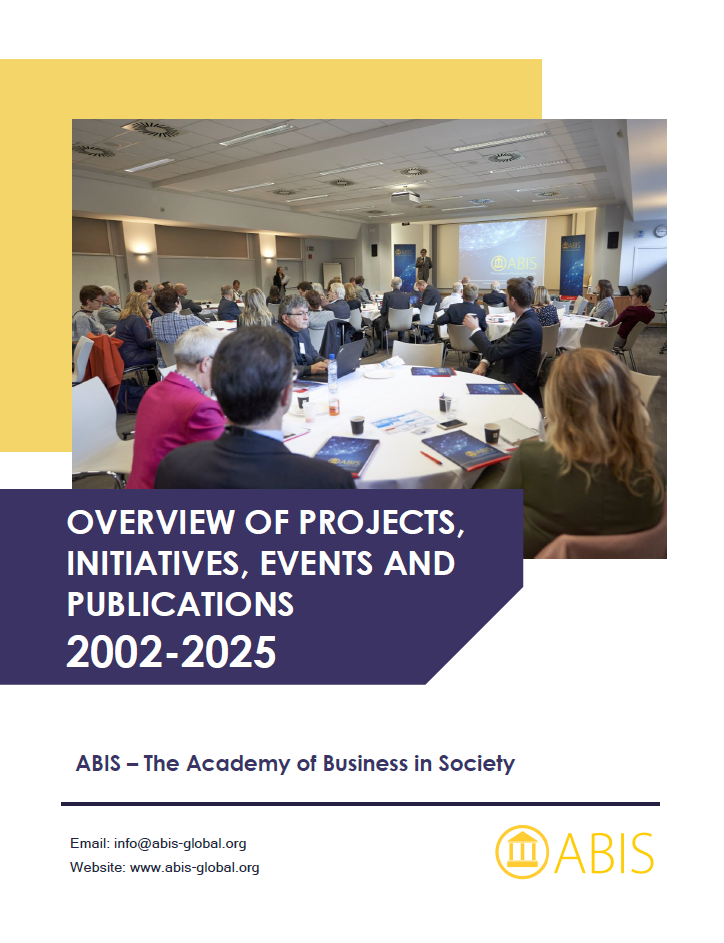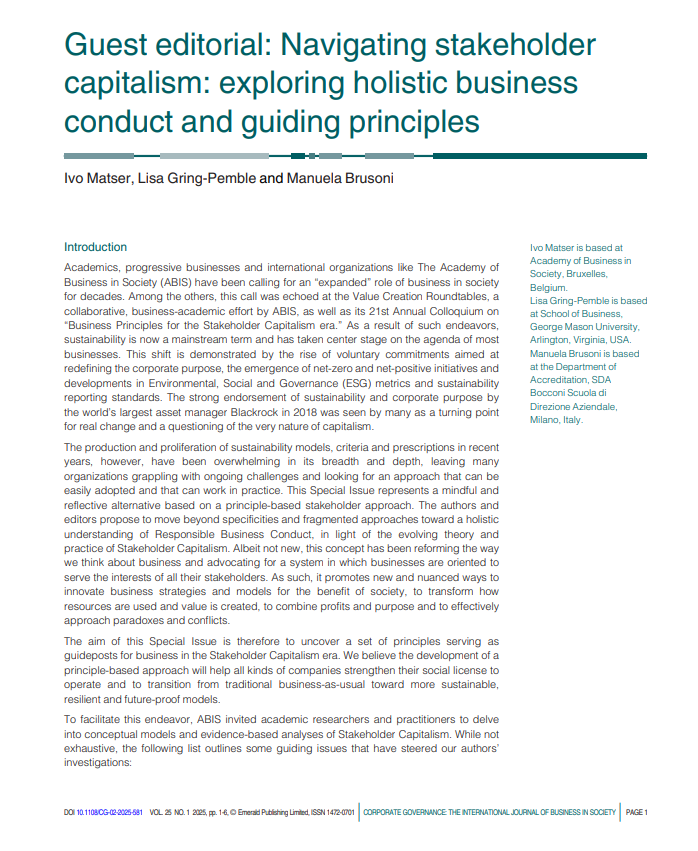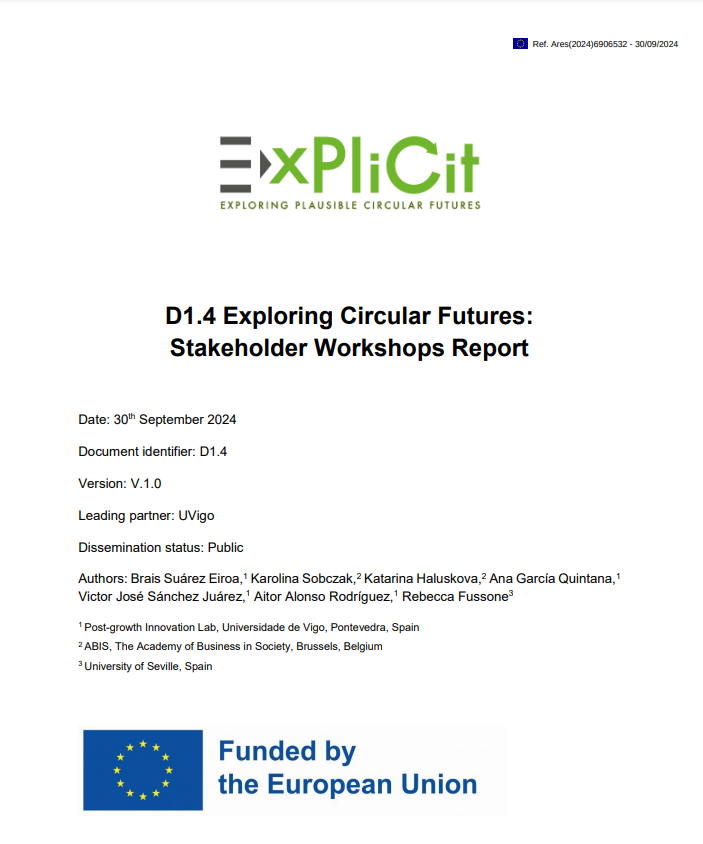.png)
Techniques of futuring for a circular economy
ExPliCit - Exploring Plausible Circular Futures is a three-year, EU funded project focused on researching (1) practical and theoretical compatibility of circular economy (CE) with growth-oriented economic contexts, (2) the emergence of alternative CE framings, (3) comparing linear and circular production systems and (4) the policy mechanisms and initiatives needed to favour the implementation of CE.
A first project outcome on “Techniques of Futuring: Portfolio of techniques and critical reflections”, was published as a result of secondments between University of Vigo and ABIS.
The report features a collection of most commonly employed futuring techniques that the authors have identified in relation to envisioning and studying preferred CE futures. The aim was to to summarise the work on Techniques of Futuring (ToFs) in a comprehensible way and enable practitioners and researchers to tackle the challenging task of imagining the future in a systematic and organised manner, in particular within the context of the circular economy.
Download the report below to discover:
- what is the purpose of futuring
- how can futuring techniques impact the future of CE
- a portfolio of 43 futuring techniques classified according to four key attributes (the capacity to envision evolutionary or revolutionary futures, the use of qualitative or quantitative methods, the objective in terms of adapting to or transforming the future and the audience involved)
- an analysis and critical reflections on the potential and limitations of ToFs to explore CE futures and address critical societal aspects.
Please let us know any comments and questions as a result of reading the report!
For more information and progress on the ExPlicit project, please follow the website.
Techniques of futuring (ExPliCit project deliverable)
.png)


